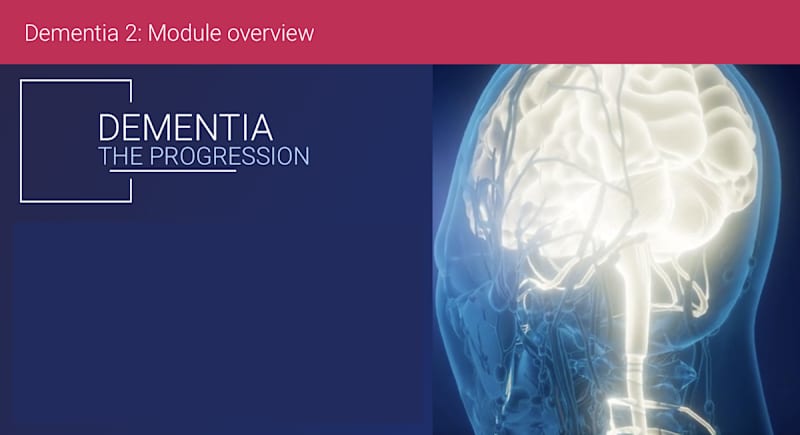What you'll learn
- Identify reversible causes of dementia-like symptoms
- Distinguish between disease effects and individual traits
- Empower clients to understand cognitive impacts of lifestyle choices
- Minimize risks associated with nutritional deficiencies and infections
Course Description
This is module 2 of a nine-part series looking at dementia. In this module, we look potentially reversible causes of dementia-like symptoms, and the changes in the individual as dementia progresses.
This course has been mapped to the Aged Care Quality Standards:
- distinguish between the effects of disease and the individual, enabling you to treat every client with dignity and respect (Aged Care Quality Standard 1)
- empower clients for participation in assessment and planning by assisting them to understand the impacts on cognition of lifestyle choices, medications, and comorbidities (Aged Care Quality Standard 3 – 3.1)
- provide the most appropriate personal and clinical care, minimising risks associated with:
- nutritional deficiencies, (ACQS 6 – 6.2)
- infection and (ACQS 5 - 5.2)
- pharmacological interventions (Aged Care Quality Standard 5 – 5.3)
- be knowledgeable, trained and equipped for assisting people living with dementia (Aged Care Quality Standard 2 ).








